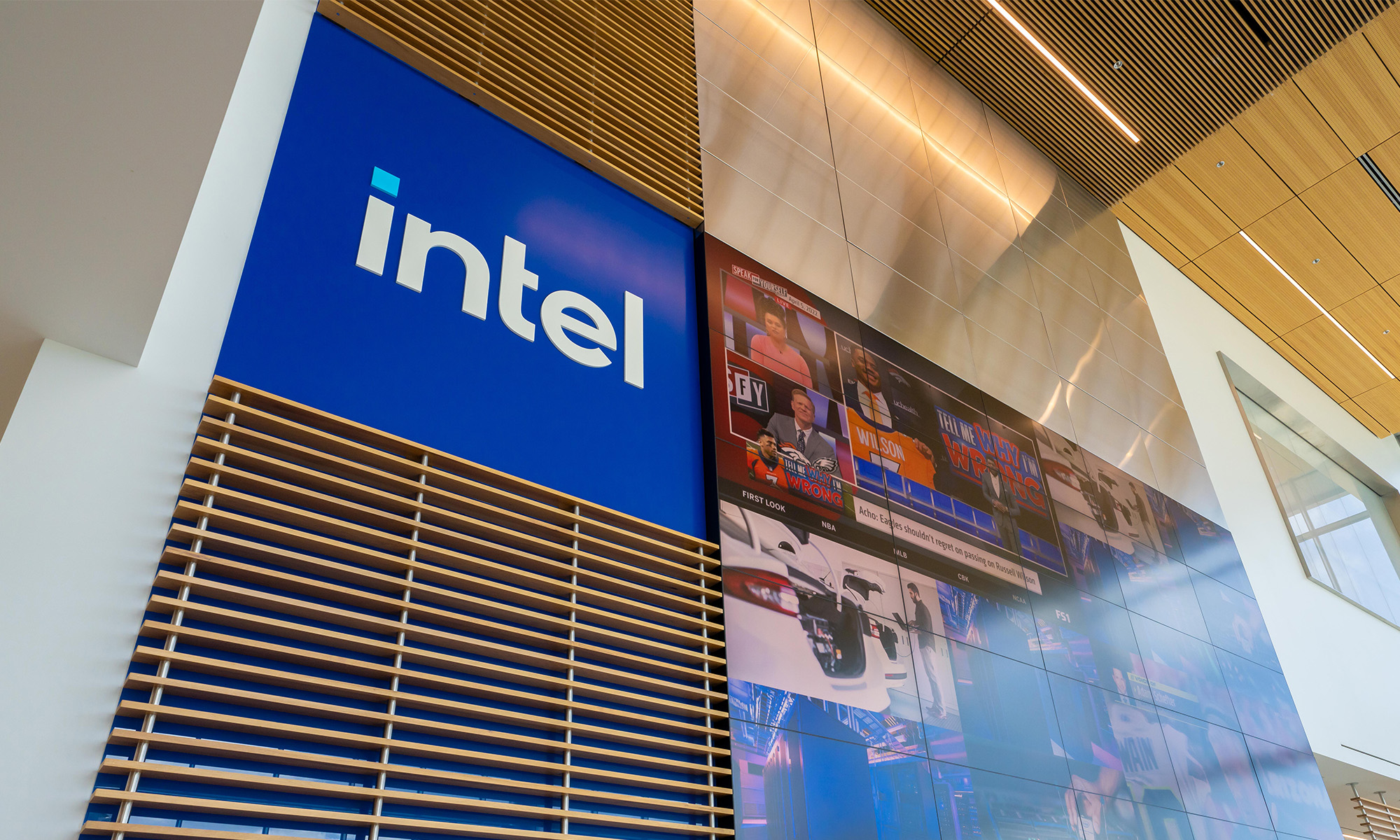
Image source: Intel.
Last week, Intel Corporation (NASDAQ: INTC) snatched up a computer vision (CV) company called Itseez, Inc. for an undisclosed sum. Computer vision is a burgeoning technology in which computers use cameras to view their surroundings, then analyze what they've seen and make decisions based on it.
The purchase is a clear sign that Intel is indeed transitioning into an Internet of Things company and away from its PC routes. The company indicated just how important Itseez may be for the future of Intel's Internet of Things plans in a recent press release.
Here's what Intel senior vice president and general manager of Internet of Things Group Doug Davis said in a statement:
Itseez will become a key ingredient for Intel's Internet of Things Group (IOTG) roadmap, and will help Intel's customers create innovative deep-learning-based CV applications like autonomous driving, digital security and surveillance, and industrial inspection.
That's a pretty big reveal considering Intel is essentially staking its future on the Internet of Things and its data center business, after the company announced in April that it's laying off 12,000 employees.
Here's what the purchase means for Intel
Intel hasn't clarified exactly how Itseez will be a key ingredient for its IoT ambitions, but it did hint that it would boost its deep learning and driverless car technologies.
And that could be very beneficial to Intel. The driverless car market will be worth $42 billion by 2025, and nearly 10% of all light vehicles sold by 2035 will be completely driverless. Those vehicles will need to be able to process the information around them in real-time, and Itseez's algorithms could help make that happen.
In addition to driverless opportunities, the broader IoT market is starting to home in on cognitive computing, which computer vision is a part of. And that market is expected to grow to $12 billion by 2019.
Intel will face some competition in this space from NVIDIA (NASDAQ: NVDA), which already has machine learning technology used by Amazon, Facebook, and Microsoft for data center and deep learning systems.
Additionally, NVIDIA's Drive PX 2 computer for driverless car systems is already being used and tested by 80 automakers and Tier 1 suppliers, and the company's recently released DGX-1 supercomputer could help power driverless cars from the cloud.
Intel may also face competition from MobilEye (NYSE: MBLY), which makes cameras and vision processing systems for driverless cars. MobilEye's cameras and processors will be in more than 200 vehicle models from 20 original equipment manufacturers this year.
MobileEye is using its cameras and processors in a new system called Road Experience Management (REM), which collects small bits of information about a car's surroundings, uploads it to the cloud, and then shares it with other cars so that they know where they're driving as well.
This is just the beginning
While the Itseez purchase may help Intel's IoT ambitions in the long run, investors should remember that the company is still very much in transition mode.
That means that for all Intel's IoT ambitions, the company still only made $2.3 billion from its Internet of Things Group last year. That'll surely expand as time goes on, but don't expect to see the Itseez purchase, or other IoT moves, propel the company's revenue in the short term.
Intel is building its IoT chops, and that's going to take some time. The Itseez purchase appears to be a significant step in the right direction, but it's still a bit too early to tell just how much of an impact it'll have on the company's bottom line.
But considering that Intel is pivoting away from selling chips to PC makers -- and its data center and IoT segments already make up a combined 40% of total revenue -- I think the Itseez purchase is a clear sign that Intel intends to use the company as part of a larger strategy to make itself into a major IoT player.







